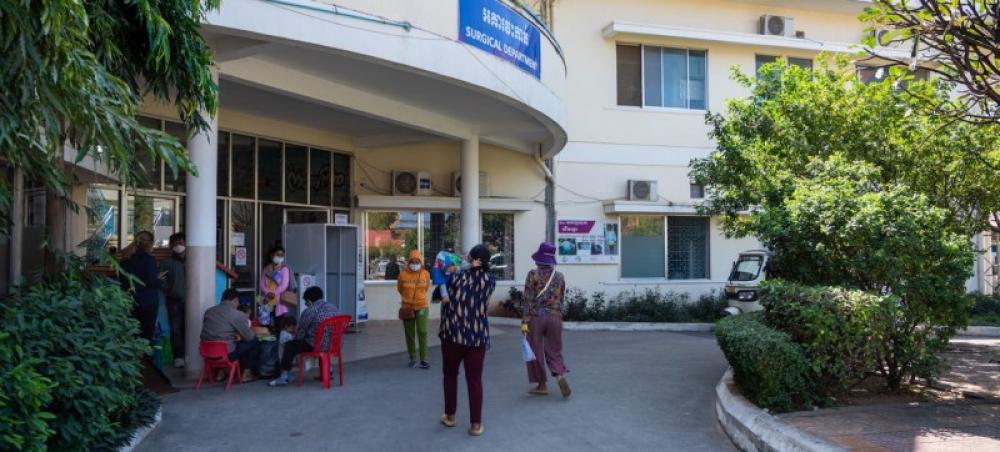Just Earth News | @justearthnews | 13 Apr 2021

Image: UNICEF/Antoine Raab
New York: United Nations independent human rights experts on Monday called for the review of new legal and administrative measures adopted by the Government of Cambodia in response to the COVID-19 pandemic, which they said appear to be “disproportionate and unwarranted”.
The new law, promulgated on 11 March, could subject violators to prison for up to 20 years and fine them up to 20 million riels ($5,000). It also grants the Government power to ban or restrict any gathering or demonstration, according to a news release issued by the rights experts.
“We are concerned that the administrative and penal measures, including excessive prison sentences and fines provided in the law, appear to be disproportionate and unwarranted. All measures taken to fight the pandemic, including possible punishments, should be necessary and proportionate and not be used excessively,” the experts said.
They also stressed that restrictions on fundamental freedoms on public health grounds “must not breach rights and freedoms guaranteed by international human rights law, and they must be proportionate, non-discriminatory, time-bound and purpose limited”.
At least four people have reportedly been arrested since the law came into effect, and several others sent to quarantine.
‘Dismay’ over disclosure of personal information
While noting Government efforts to contain the virus and limit community transmissions, the experts also expressed dismay over a recent disclosure of personal information of individuals who tested positive for COVID-19.
Since 3 April, the Phnom Penh City Administration has published private details of at least 976 individuals who tested positive for the virus, including their name, sex, age, occupation, workplace and address, according to the news release. Local authorities in other provinces are also currently publishing such personal information.
The experts highlighted that personal health data must be subjected to strict privacy protections against disclosure to anyone not authorized for public health purposes, and that publishing such details could deter people from seeking coronavirus tests.
“The public disclosure of personal data, including names of those who have contracted the virus, is a deplorable breach of the right to privacy”, they said, adding “these measures do not have any substantial nexus with the public health measures, as contact tracing does not need to reveal private and personal information”.
Last December, authorities in the country had revoked a decision to publish such personal details after UN experts intervened.
Provide economic assistance to the affected
The experts also highlighted the impact of recent restrictions, including a two-week curfew imposed on 1 April in capital Phnom Penh that the Government said was aimed at suspending “unnecessary” business, gatherings and travel, as well as a ban on inter-provincial travel between 7 and 20 April, the traditional Khmer New Year holiday period.
Such measures will further hurt the most vulnerable, who have already suffered significant economic hardship during the pandemic and risks pushing them into poverty, the experts warned, urging the Government to provide economic aid to those affected by the crisis.
“Those who will suffer the most will be individuals working in the informal sector such as tuk-tuk drivers and street vendors … the Government should ensure that its economic relief measures target these groups and that people in vulnerable situations are provided with adequate support to cope with the pandemic measures.”
The experts urged authorities to ensure that all Cambodians, especially those in marginalized and vulnerable situations, have access to goods, services and facilities specific to COVID-19, without discrimination.
The independent human rights experts voicing concern included the special rapporteurs on the situation of human rights in Cambodia; the rights to freedom of peaceful assembly and of association; the right to privacy; and the right to physical and mental health.
The Special Rapporteurs are part of what is known as the Special Procedures of the Human Rights Council. The experts work on a voluntary basis; they are not UN staff and do not receive a salary. They are independent from any government or organization and serve in their individual capacity.